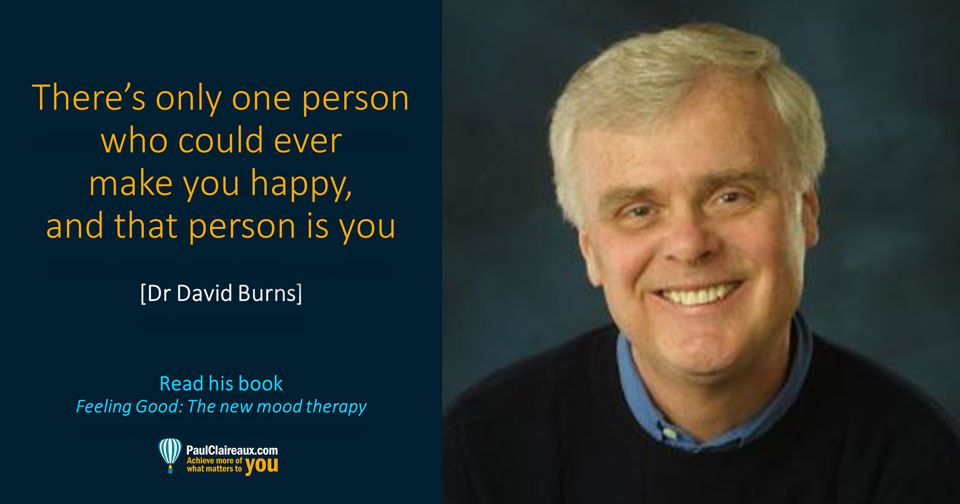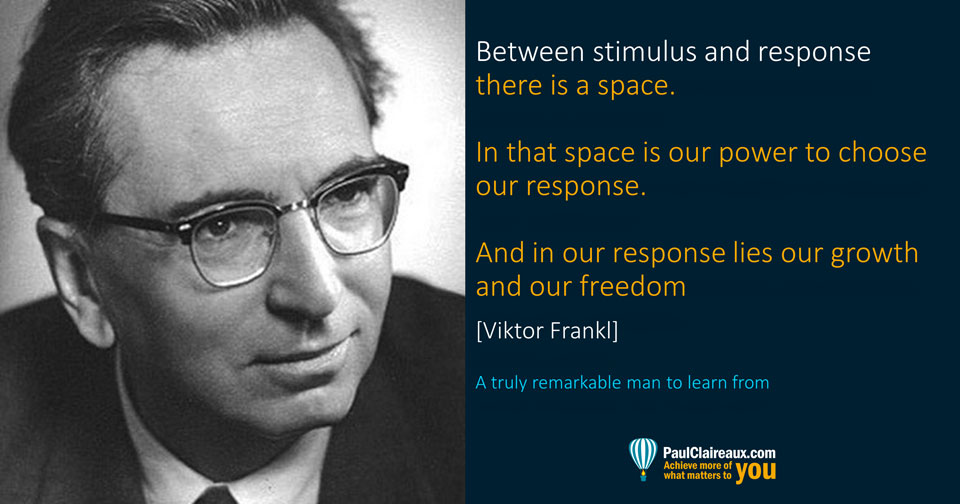Feeling good about this book
because it's helped a lot of people, including me, with depression

To achieve more,of whatever we strive for, it sure helps if we’re feeling good about it.
And yet we can’t feel good all the time – so how do we deal with that?
Well, we can start by getting into the ‘feel good’ mood with this piece of music 😉
Feeling Good?
Okay, well, if you’ve explored this question of happiness and ‘feeling good’ before, you’ll know that there’s a lot written about it.
Indeed, there are literally thousands of books and blogs out there that claim to hold the secret to your happiness. And, one of the most ridiculous ideas in this genre is the ‘secret law of attraction’ (the LOA).
Don’t worry if you’ve not yet heard about the LOA, here’s a great summary description of it by Oliver Burkeman, one of my favourite authors.
This is taken from a talk by Burkeman on the whole happiness industry – for the launch of his own, excellent book, ‘The Antidote. Happiness for people who can’t stand positive thinking’
That’s one of my all-time favourite books and is listed here.
Here’s Burkeman on ‘The Secret’
We’ve learned that visualising the successful achievement of your goals can have the reverse outcome
And that’s contrary to my least favourite self-help book – ‘the secret’.
In case anybody here doesn’t know the thesis of ‘the secret’ by the way it’s that there’s a single confidential piece of wisdom that provides the answer to all human happiness and success – and has been passed down and kept secret through the generations.
It was, apparently, passed down from Aristotle to the Buddha to Jesus to Leonardo da Vinci and to Einstein and then . . .
. . . well then to Ronda Burn who wrote the book the secret . . . and ruined it . . . really!
That’s funny – as is this further ‘take’ on the law of attraction from the ‘Skeptics’ who are really worth following for their brilliantly funny myth-busting videos.
Quite clearly the secret law of attraction is not only NOT a secret . . . it’s nothing like a law either.
That said, the facts don’t seem to stop a lot of nonsense from persisting – and the LOA is just one example.
The truth is that a lot of the material which promises a road to happiness is nonsense.
And, more importantly, it’s the last thing we need when we’re facing our most difficult challenges in life.
At these times, what we need is compassion and understanding . . .
. . . and some solid ideas for ‘getting through’ to the light on the other side.
Now here’s the solid science
If you’ve read my Insights before you’ll know that I aim to pick out the best ideas for you – from leaders in their fields.
And the subject of happiness is no exception. So, here are some solid ideas from someone who seriously understands this subject.
Dr David Burns (born in 1942) is a qualified and hugely experienced Psychiatrist.
He knows what really works to lift our spirits because he’s got the research evidence to support it.
Thirty-five years ago, Burns wrote a book, ‘Feeling good’, which went on to sell millions of copies.
And it improved the lives of a great many people, worldwide, me included 🙂
I’ve recently re-read parts of it and wanted to share some of the ideas with you.
Burn’s book teaches us how to deal with ‘the stuff’ that gets in the way of ‘feeling good’ And, I’ll tell you now, that the real secret lies in challenging our own perceptions of the world and people around us.
Burns helps us to understand what’s going on – and what’s going wrong – with our thinking during our most emotionally turbulent times.
At these times we may be dealing with anxiety, guilt, pessimism, procrastination, low self-esteem, or other forms of mild depression.
And yet, Burns rejects the idea that our lives need to be dominated by every wave of emotion we encounter.
His advice is that we fair better if we’re active, and we deal with our issues rather than being “at the effect” of them the whole time.
He’s also quite clear that attention seeking behaviour does not serve us well.
He explains how our moods are simply created by our beliefs (aka “cognitions”) about what’s going on around us (or inside us)
The key Insight is that false beliefs cause a lot of our problems.
Stop and Check
Of course, we all have uncomfortable thoughts from time to time. But Burns’ suggestion is to stop and check the validity of those thoughts when they arise.
And that means before we indulge ourselves in an emotional outburst about them.
Simply put, we can decide to react differently to difficult situations and conversations that confront us in our daily lives.
We can choose to react more calmly and rationally to life’s challenges – and we will feel good when we do.
As Viktor Frankl once said . . .

You can find another short piece on Frankl’s amazing life and work here
Frankl, like Burns, was a Psychiatrist and they clearly agree on this point.
Three levels of beliefs
Burns suggests that we have three levels of beliefs that control, and sometimes distort, our perception of reality.
Firstly we have surface beliefs
These are our automatic rapid thoughts which can have instant effects on our mood.
Then we have our intermediate beliefs
These are based on our attitudes, assumptions and ‘rules’ we use in life.
They’re less rapid in effect but can, nonetheless, be dangerous.
For example, we may apply an IF/THEN rule to a particular job hunting challenge we face – and tell ourselves that
“IF I got rejected for a job THEN I must be useless”
It’s the wrong conclusion of course, but how many of us do it?
This IF / THEN thinking is like a simple computer program. And it’s wrong because in real life there are hundreds of reasons for failing a job interview. Not just one.
The clever thing to do, in this situation, is to find out why you were not suitable for the job and then deal with that reality.
And if you’re super smart, you’ll find out the answer to that question at the end of the job interview – yes, whilst you’re still there.
This is one of the best techniques for getting a job and here’s why:
The interviewers will either:
- Tell you there are no reasons why you should not have the job – in which case you have a good chance of getting it – Or
- Tell you what they’re unsure about. And that gives you a chance to deal with their uncertainty . . . right there and then.
But I digress – this is not an Insight on Job Hunting – we’ll come back to that another day
Finally, Burns talks about our core beliefs
These are the fundamental beliefs that we hold to be true about ourselves, others, and the world.
And, once again, these beliefs may, or may not, be grounded in reality.
So, for example, we might hold a flawed belief that we’re “not worthy” of a particular role that we hold in life (in work or at home)
How the book can help
If you’ve read this far, you’re probably already clear on how valuable this book could be.
Burns’ calls this book his ‘Bibliotherapy’ because it’s Cognitive behavioural therapy through reading
In a nutshell, his techniques help us to modify (re-frame) our distorted, negative beliefs.
One of the most powerful sections – for me at least – is where Burns offers his list of the 10 most common ‘Cognitive Distortions’ – and describes how they let us down.
I must confess that I found myself saying, ‘Yes, I do that’ to more than one of the examples!
I’ll share my thoughts on these cognitive ‘distortions’ another time. Sign up to my newsletters if that’s of interest.
The value of the book ‘feeling good’, is measured in whether it helps people to ‘get over’ their cognitive distortions to find a more peaceful life.
And its success rate, according to Burns, is high.
Conversely, I’m not aware of any evidence to show that promoting a silly law of attraction has helped anyone.
A book of many dimensions
Of course, I’m only scratching the surface of this book here.
Some other areas it covers include:
- Techniques for stopping hostility and the aggressive or compulsive acts which occur in states of anger.
- The whole area of confidence, including approval addiction. This is about becoming more rational about whether other people’s opinions matter.
- Love addiction and how to get closer to psychological independence.
Burns also dedicates a chapter to procrastination and explores fourteen cognitive causal factors behind our motivation.
So, if you’re going to put anything off till later, don’t make it that chapter 😉
This book, ‘Feeling Good’, originally written in 1980 but since updated, is still highly regarded by health professionals today.
It’s a truly wonderful book for anyone who’s serious about ‘achieving more’ and enjoying a more peaceful existence.
And is listed, alongside more of my other favourite books, here
Hope that’s useful.
Thanks for dropping in
Paul
For more ideas to achieve more in your life and make more of your money, sign up to my newsletter
As a thank you, I’ll send you my ‘5 Steps for planning your Financial Freedom’ and the first chapter of my book, ‘Who misleads you about money?’

Also, for more frequent ideas – and more interaction – you can join my Facebook group here
Share your comments here
You can comment as a guest (just tick that box) or log in with your social media or DISQUS account.

Discuss this article